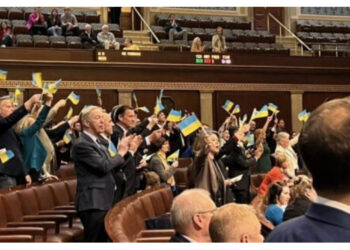Whenever a historical figure passes it is time consider his contributions. The Greeks and the Romans advised us not to speak ill of the dead. The Romans said de mortuis nil nisi bonum dicendum est—of the dead nothing but good is said. That is a noble and sound rule of thumb. But it should be discarded in the wake of Henry Kissinger’s passing at age 100.
Kissinger’s death is an occasion to reflect on how the world has changed since the early years of the 20 th Century but also how the world looks in this Century. The hagiographic obituaries and countless reflections upon his life permit us to realize he had great success in advancing positive publicity. But that publicity cannot hide the facts of his titanic failures and their dire consequences for the American people.
The damage he did was great, as a tour of the horizon reveals. He failed in his negotiations with the Soviet Union to impose limitation on MIRVs in the SALT I Treaty. This ensured that the Soviets would heavily MIRV their nuclear delivery systems, posing a new threat to American security and opening a window of vulnerability to Soviet nuclear coercion that the Reagan administration worked to close. The policy of détente guaranteed that American strength was weakened in the face of an aggressive Soviet Union. His duplicity in the negotiation of the 1973 Paris Peace Accords led to the abandonment of the South Vietnamese and its conquest by North Vietnam. He did yet more damage in Southeast Asia. The overthrow of the Cambodian government by the Communist Khmer Rouge led to the 1975-1979 democide against the Cambodian people in which 2 million people may have died in a population of about 7 million.
The greatest consequence of Kissinger’s life was he was largely responsible for the rise of America’s greatest enemy, the People’s Republic of China (PRC). For this, he can never be forgiven. Kissinger monetized his connections in the foreign policy establishment to facilitate trade and investment in the PRC. For this, he was richly rewarded by PRC officials, the U.S. foreign policy establishment, Wall Street and financiers, and U.S. presidential administrations. He labored to create the Engagement School—according to which the PRC would see the error of its ways by getting richer with U.S. support.
Kissinger touted himself as a great strategic thinker. And he was—for the PRC.
He labored to create a network, which included of the U.S. Chamber of Commerce, Wall Street, financiers, politicians, law firms, lobbyists, to ensure that American knowledge, skills, resources, and investment flowed with impediment into the PRC.
Those involved got rich.
The costs to the United States were colossal. First, the U.S. funded the rise of its existential enemy while hindering the ability of the U.S. to respond. Kissinger did his utmost to keep the tyranny of the CCP in power—and prospering. Second, it greatly weakened the United States. The lives of the American people were changed forever. American towns and cities, the economic strength of the United States and the economic opportunities and well-being of the American people were damaged. Third, the Engagement School used its wealth to worsen the corruption of American politics, business, media, and universities, and forged their dependency on the PRC’s continued growth. The 400 business leaders who celebrated Xi Jinping at their dinner in mid-November are the fruit of Kissinger’s effort. Their financial success is rooted in the PRC’s success, not the success of the United States. That is a strategic perversion that Kissinger caused more than any other. Whether it may be corrected is not clear. The Chinese people, the American people, and U.S. national security incurred the costs of Henry Kissinger’s life. Those costs are still accruing. The bill will have to be paid. A great injustice of Kissinger’s life is that it will not be paid by Kissinger Associates. But will be by the Chinese and American people, U.S. national security, and the U.S. military.





